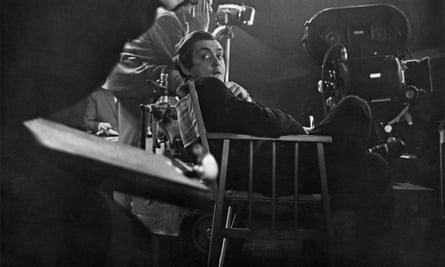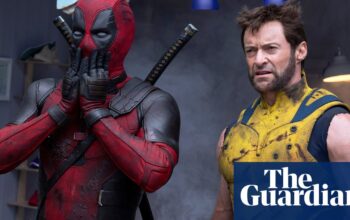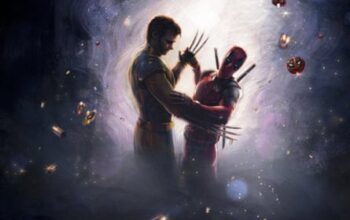S
60 years ago, Columbia Pictures debuted two black-and-white films with a similar plot: what if American planes carrying hydrogen bombs were mistakenly ordered to drop them on targets in the Soviet Union, potentially leading to a devastating nuclear war and the extinction of humanity? The Cuban missile crisis had recently heightened tensions between the superpowers, and filmmakers were particularly motivated to confront their fears of the cold war.
The dates of the film releases were a mirror image of Karl Marx’s well-known quote on the repetition of history, “first as tragedy, second as farce”. The farce, Dr. Strangelove directed by Stanley Kubrick, was released first. Then came the tragedy, Fail Safe directed by Sidney Lumet, in October. There were complicated legal issues surrounding the shared origins of these two films, but they complement each other wonderfully, with a minor variation in their perspectives on our inability to control weapons capable of god-like destruction.
The theme of Fail Safe is that humans are prone to error, while the theme of Dr. Strangelove is that humans can be foolish.
Overall, Kubrick effectively conveys his message. Among many reasons, Dr. Strangelove is widely considered the best satire film due to its accurate portrayal of the absurdities of the cold war. The film highlights the dangerous escalation of an arms race between two superpowers, ultimately leading to mutual destruction. It’s clear that high-ranking military and political officials have considered the catastrophic consequences of a nuclear conflict, as demonstrated in the war room scene. Kubrick, along with co-writers Terry Southern and Peter George, add a clever twist to this reality with the line, “I’m not saying we wouldn’t get our hair mussed.”
Dr Strangelove skillfully moves between satire and silliness while maintaining its impact. The Zucker-Abraham-Zucker team, known for their work on Airplane!, likely found inspiration in the comedic names of characters such as Brig Gen Jack D Ripper and Col “Bat” Guano. The film also highlights the absurdity of high-ranking officials, like the chairman of the joint chiefs of staff, prioritizing their personal affairs over their duty to their country. However, the film’s message does not require much embellishment. The actions of Ripper, driven by paranoia and a fear of contamination, are not far off from the delusional beliefs of former national security advisor Michael Flynn, who subscribed to QAnon theories while serving under President Trump.
However, Kubrick is aware of when to take a step back. The film Dr Strangelove does not aim to be a constant source of laughs because believability is its most powerful weapon. The situation presented is no more amusing than in Fail Safe: B-52 bombers equipped with nuclear weapons are on a routine patrol just two hours away from Soviet targets, awaiting the usual code to return to base. However, their commander, Gen Ripper, instead gives the code for “Wing Attack Plan R”, which not only sends them into the USSR but also changes all communication to a three-letter code known only to Ripper. In the Pentagon war room, the ineffective president, Merkin Muffley (played by Peter Sellers), calls upon the chairman of the joint chiefs of staff, Gen “Buck” Turgidson (played by George C Scott), and other military leaders to address the crisis at hand. How did this situation come about? And what can be done to prevent it?
The clear message of this work is the value of structure in satire, as demonstrated by the solid plot and black-and-white photography that maintains a strict deadpan tone. The attention to detail in a Kubrick film does not hinder the humor in Dr Strangelove, but rather enhances it, similar to how Buster Keaton maintains a straight face amidst chaotic situations. The fact that we can believe a code like “Wing Attack Plan R” would result in a top secret protocol, like the one carried out by Major TJ “King” Kong (Slim Pickens) in his B-52, allows us to find humor in his survival kit consisting of condoms, lipstick, and nylon stockings. (“Wow, a person could have a great weekend in Vegas with all of that.”)

Display the image in full screen mode.
The casting in this film is excellent, especially with Sellers in three roles: Lionel Mandrake, an RAF officer who tries unsuccessfully to reason with Ripper; President Muffley, who shares amusing small talk with the Soviet premier while informing him of the situation; and Dr. Strangelove, a wheelchair-bound former Nazi who struggles to control his saluting hand. Hayden and Pickens portray the expected roles of a crazed leader and a friendly countryman, respectively. Scott, who would later play George Patton, perfectly embodies military figures like Turgidson, portraying him as a loud and foolish man with wild eyes and exaggerated gestures. He can downplay even the most serious of errors.
Dr. Strangelove has a strong dislike for the concept of deterrence. According to the Nazi character in the film, it is defined as instilling fear in the enemy of being attacked. In response, the Soviets have developed a “doomsday machine” that would retaliate with extreme force in the event of a nuclear attack, rendering the Earth uninhabitable for 93 years. The intention is to relieve humans from making a decision that could end the world, but it is noted to the Soviet ambassador that this plan is ineffective if it is kept secret.
“The announcement was scheduled for the party congress on Monday,” the ambassador responds. “As you are aware, the premier enjoys surprises.”
Revisiting Dr. Strangelove in the context of Christopher Nolan’s Oppenheimer serves as a reminder of the inherent human imperfections embedded in weapons of mass destruction, particularly with the main creator of the atomic bomb. The film’s most clever moments don’t require much effort to find humor, as Kubrick exposes the absurdity behind humanity’s biggest source of dread. While our arrogance may ultimately lead to our demise, we can at least find some humor in it.
Source: theguardian.com


